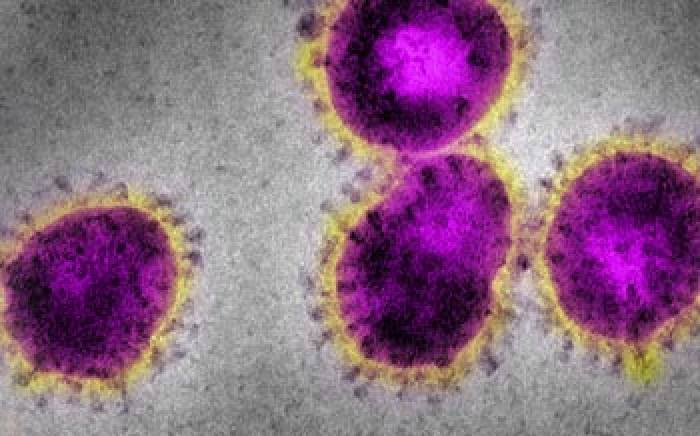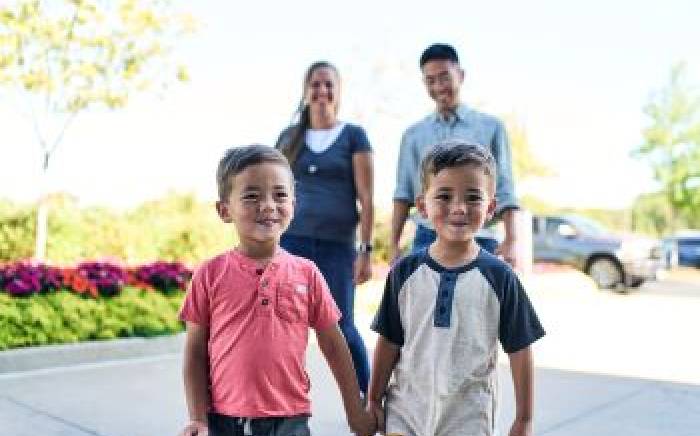 Just as businesses, restaurants and parks are starting to reopen and families feel more confident heading into the world (with masks), parents received news about another serious illness: Multisystem Inflammatory Syndrome in Children (MIS-C), thought to be related to COVID-19.
Just as businesses, restaurants and parks are starting to reopen and families feel more confident heading into the world (with masks), parents received news about another serious illness: Multisystem Inflammatory Syndrome in Children (MIS-C), thought to be related to COVID-19.
In late April 2020, reports began circulating about an inflammatory disorder in children with COVID-19. Cases were first noticed in the United Kingdom and later in New York. The illness, now called MIS-C, causes prolonged fever, inflammation in the body, and affects one or more organ systems.
It’s not yet known exactly what is causing this inflammatory syndrome, although it seems to be related to COVID-19. Some, but not all children have tested positive for COVID-19 either by nasal testing or antibody testing.
The first patient with MIS-C at St. Louis Children’s Hospital was seen in March, just as doctors around the world were beginning to recognize the disease, explains Alexis Elward, MD, MPH, chief medical officer and a Washington University pediatric infectious disease specialist at St. Louis Children’s.
“Recognition of MIS-C as an entity was evolving as we were starting to see patients with COVID19. Our group of specialists here is keyed into national groups and was monitoring information as it came out. The illness has a broad spectrum of symptoms. The public health team is casting a broad net to look for patients with MIS-C, so there is a very broad definition. We want to build awareness about this disease so we that we can be sure that kids get the care they need.”
Serious Symptoms, Strong Recoveries
Some children with MIS-C have had inflammation of the heart, vomiting, diarrhea, abdominal pain, kidney injury, and/or rash.
One of the most dangerous symptoms of MIS-C is swelling of the coronary arteries, which is why prompt diagnosis and treatment of the illness is vital, Dr. Elward says.
“Our level of vigilance at St. Louis Children’s Hospital is high. We’re working to assure that kids who have had MIS-C have good follow-up care as we’re learning about other complications from this illness such as pulmonary embolism or deep vein thrombosis—these are dangerous blood clots.”
From March to mid-May, a few patients have had symptoms consistent with MIS-C at St. Louis Children’s Hospital.
“While the symptoms are sometimes varied, the patients who came to St. Louis Children’s were successfully treated and went home well after about two weeks in the ICU,” says Patrick Reich, MD, MSCI, medical director of infection prevention at St. Louis Children’s. “ But the medical community is still learning about MIS-C.”
MIS-C symptoms can overlap with some symptoms of Kawasaki disease, a rare illness in young children that can cause fever, rash, conjunctivitis, red or swollen hands or feet, and bright red or cracked lips. It also can result in enlargement or aneurysms of the coronary arteries.
Dr. Elward says although some Kawasaki-like symptoms can occur in children with MIS-C, her team has not seen as much swelling or rashes as is typical in children with Kawasaki disease.
“The predominant symptoms of MIS-C are a high fever combined with persistent gastrointestinal symptoms, including abdominal pain, nausea, vomiting and diarrhea, that last for days. These kids are really sick and often get dehydrated.”
MIS-C symptoms are also distinct from COVID-19 symptoms in children. “MIS-C is not subtle—the symptoms aren’t mild,” Dr. Reich explains. “Children who have been diagnosed with MIS-C are quite ill. It’s important to distinguish children with COVID-19 who typically have mild symptoms, from children with MIS-C who require hospitalization.”
While diagnosis can be complex, the distinguishing symptom of MIS-C is a prolonged high fever of at least 101.5° F, Dr. Elward adds. “My rule of thumb is if a child has a fever longer than three days, parents should call their pediatrician for an evaluation. That evaluation can be through telehealth or in the pediatrician’s office. Then the pediatrician will decide if the infectious disease team needs to get involved.”
Seek the Safety of Medical Care
Dr. Elward emphasizes that parents should not be afraid to seek medical attention if their child is sick and not getting better after a couple of days. “If your pediatrician says to come to the clinic or the hospital, please do it. We’re doing all the things necessary to keep everyone safe.”
Steps to prevent the spread of illness at St. Louis Children’s and in clinics and doctors’ offices include wearing masks and personal protective equipment, social distancing, registering patients in their cars, and getting patients back to their rooms quickly to keep them safe.
The Good News for Families
Dr. Reich reassures parents that MIS-C in children is extremely rare.
“COVID-19 has disproportionately affected adults with only a small subset of kids getting it. An even smaller percentage of kids with COVID-19 will get MIS-C. And the patients we’ve treated have all done very well and went home.”
These positive stories should ease parents’ fears, says Jason Newland, MD, a Washington University pediatric infectious disease specialist at St. Louis Children’s. “We’re hearing a lot about MIS-C, but it’s still an extremely rare complication of COVID-19. Children with COVID-19 have mild, if any, symptoms and get better. MIS-C is a rare complication of an already rare infection in children. In our hospital and across the country, the prognosis is very good even if those kids get the illness.”
As of mid-May, only nine children have been hospitalized for COVID-19 at St. Louis Children’s throughout the pandemic. Meanwhile, nearly 300 children are in the hospital every day with a variety of other health concerns.
“We’re still seeing a lot of children with typical kinds of infections, such as strep and staph, that are far more common than Kawasaki disease, MIS-C, or COVID-19,” Dr. Reich says. “We should be focusing on all the other illnesses in children like we always have.”
Dr. Newland stresses that parents should prioritize keeping their children healthy overall, especially now. “It’s vital to continue your children’s routine vaccinations and regular check-ups with their pediatrician to keep children healthy.”
With any illness, early diagnosis and treatment is key. “In general, the sooner you come in for medical attention so we can diagnose whatever is making your child sick, the better your child will do,” Dr. Elward advises. “Frequent contact with your pediatrician is really important at this time. Doctors’ offices, clinics and hospitals are safe places to go with every precaution taken now so parents shouldn’t hesitate to seek care for their children.”
Finding Answers for the Future
One of the mysteries of COVID-19 is why it has hit adults especially hard while children typically don’t get it or only have mild symptoms. “That’s the million dollar question that has huge implications,” Dr. Newland says. “In contrast, children are typically at higher risk and get sicker than adults with most seasonal respiratory viruses.”
To answer the many questions surrounding COVID-19 and MIS-C, Washington University researchers are working with colleagues across the country to study the virus and develop vaccines for COVID-19.
“We’re part of a national group that is trying to capture and describe all cases of COVID-19,” Dr. Newland says. “In addition, we’re doing a lot of work locally and nationally to discover how to acquire more MIS-C specimens to conduct other studies in the future.”
6 Key Takeaways About COVID-19 and MIS-C
- COVID-19 is only affecting a small portion of children. About 3% of all children tested for COVID-19 have had positive tests in the St. Louis area. Children 18 years old and younger account for about 2% of all COVID-19 cases in our area.
- The vast majority of children who do get COVID-19 have a very mild illness and rarely have severe symptoms requiring hospitalization.
- Only a small percentage of children with COVID-19 have been diagnosed with MIS-C. It is a rare complication of an already rare infection in children.
- Hospitals, clinics and doctor’s offices are safe and have taken all precautions to protect patients and families. Don’t hesitate to seek medical attention when needed and follow through with routine vaccinations and check-ups to keep your child healthy.
- Key symptoms of MIS-C include prolonged high fever, abdominal pain, vomiting, and diarrhea. Parents should contact their pediatrician if their child has a fever lasting longer than three days.
- If MIS-C is suspected, recommended evaluation may include:
- Blood tests to measure blood markers of inflammation, liver, and kidney function as well as blood tests for antibodies SARS-CoV-2 (the virus that causes COVID-19).
- Echocardiograms (ultrasounds of the heart) to look at heart function as well as the size of the coronary arteries.









